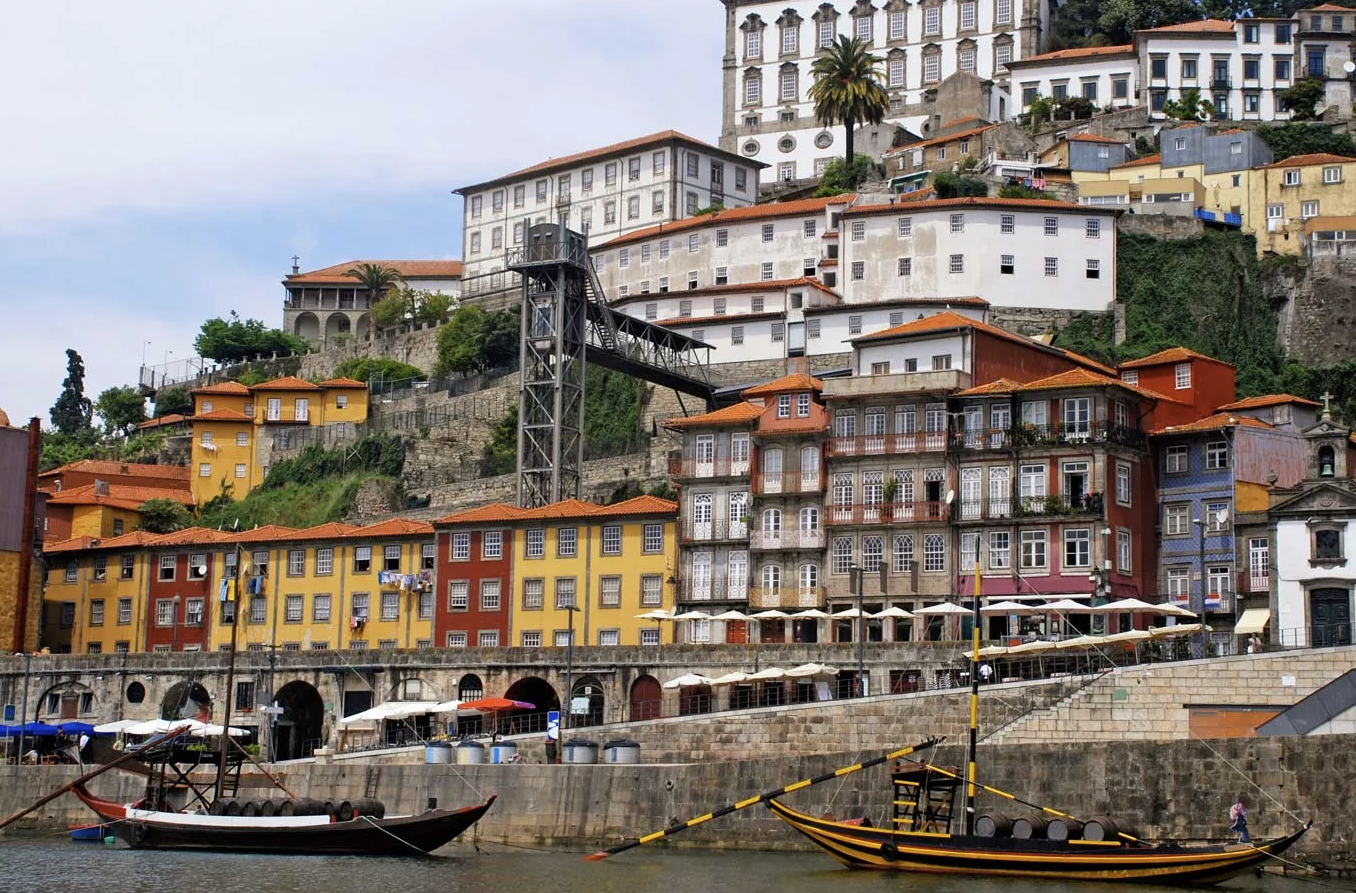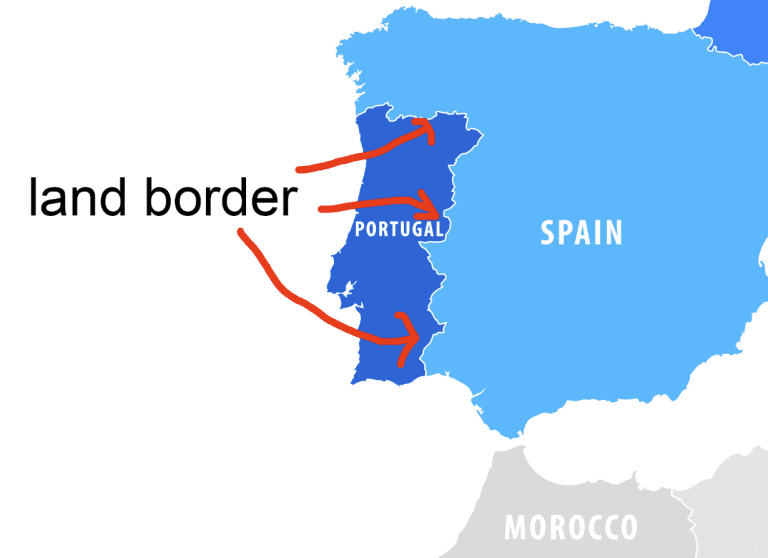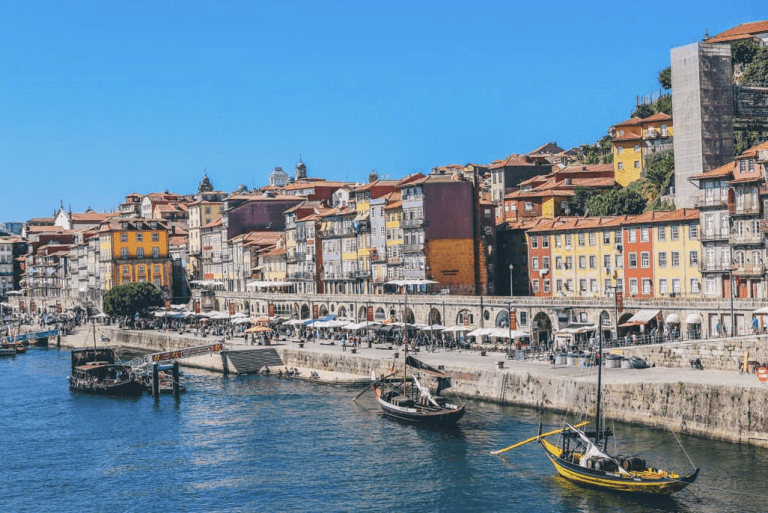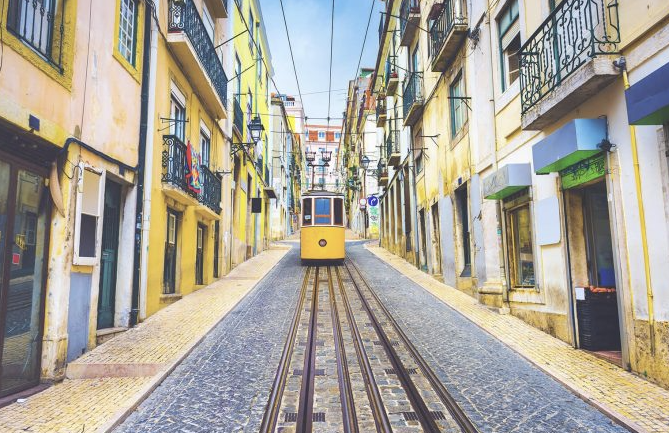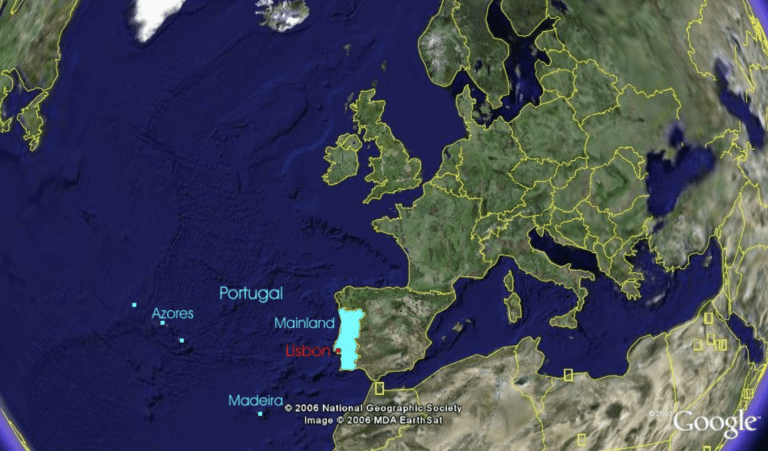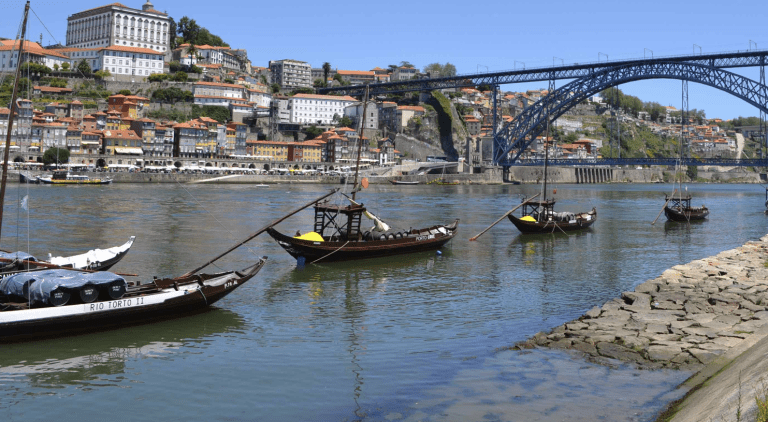How old is Portugal, you ask? To answer that query, let us explore the long and varied history of Portugal. This article will take you on an exciting journey through the past, uncovering the ancient origins of this extraordinary nation.
We’ll begin by examining its early habitation by Iberian tribes and influence from Germanic people. Next, we’ll discuss the birth of Portugal as a kingdom under Henry’s coronation and its subsequent empire-building expeditions to places like Cape Verde Islands in South America.
As we navigate further into how old Portugal is, our focus will shift towards key historical milestones and political evolution over centuries. We’ll also touch upon persistent challenges faced by this country and ongoing efforts for improvement.
In addition to historical aspects, get ready to discover more about Portugal’s geographical marvels & legendary tales associated with Lisbon. Finally, we’ll highlight its cultural richness & modern progression – contrasting traditional rural life with urban modernity.
The Ancient Roots of Portugal
Portugal, a country with more history than a library, traces its roots back to the Iron Age. The early inhabitants were Iberian tribes called Lusitanians who lived in the interior region.
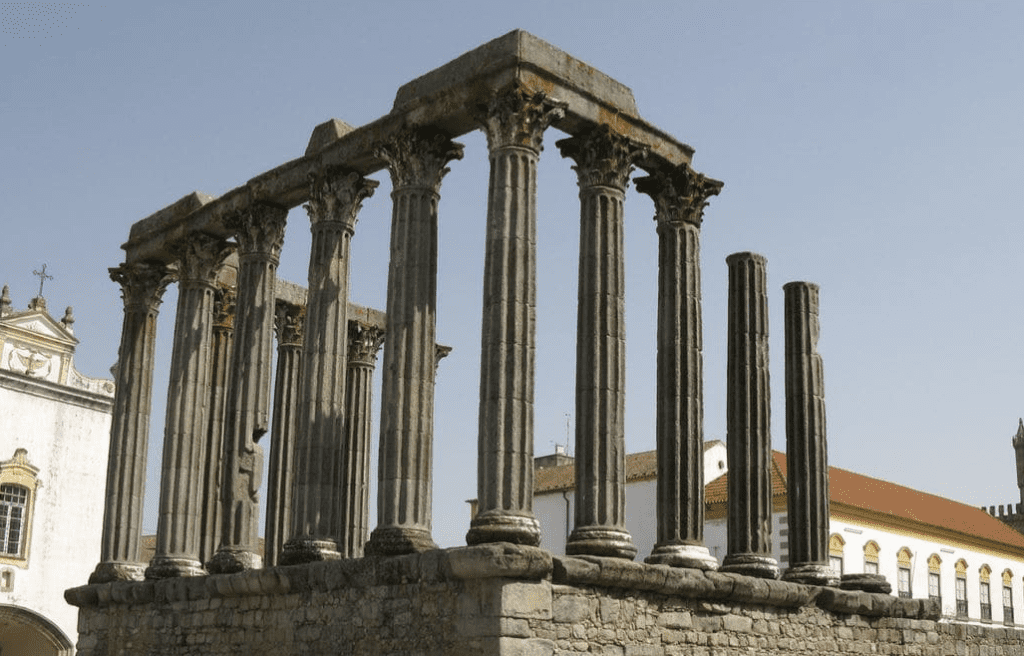
Inhabitation by Iberian Tribes
The Lusitanians, a Celtic tribe, settled here around 1000 BC. They were all about farming and cattle rearing, leaving behind cool artifacts like stone circles that give us a peek into their ancient way of life.
In the 5th century AD, Germanic people invaded, bringing their class structure and laying the foundations for what would become Portugal.
Influence of Germanic People
The Visigoths, one of those Germanic tribes, played a big role in shaping early Portuguese society. They established a kingdom that covered most of modern-day Spain and Portugal after kicking out the Romans. You can still see their influence in the architecture scattered around these parts.
But it was during the Moorish occupation from the 8th to 12th centuries that Portugal really got its groove on. The cultural exchange between Christian North Europe and Islamic South left a lasting impact on the language, architecture, and cuisine of Portugal. It’s like a delicious blend of diverse influences.
The Birth of a Kingdom
Portugal’s history is filled with fascinating stories and influential figures. One such figure was Henry, a Burgundian knight whose coronation as King set the stage for Portugal’s emergence as an independent nation.
Coronation of Henry
In 1095, Henry of Burgundy became the Count of Portugal after marrying Teresa, daughter of Alfonso VI of Leon. His rule brought about considerable alterations to the political landscape of the area. The countship he ruled eventually transformed into the Kingdom of Portugal in 1139 under his son Afonso Henriques, who declared himself king after a victorious battle against the Moors at Ourique.
Afonso I continued to expand Portuguese territories southward, capturing Lisbon from the Moors in 1147, marking another milestone towards establishing its national identity. He also laid the foundation for a legal system with the issuance of the first written laws known as “Afonso’s Laws.”
Empire-Building Expeditions
The Age of Discovery that followed saw Portugal embark on ambitious voyages across uncharted waters, leading to the discovery of new lands and sea routes. Spearheaded by visionary leaders like Prince Henry ‘The Navigator’, these expeditions led to the establishment of trade outposts along Africa’s coastlines, extending their reach towards India, Brazil, and the Far East. This period of exploration and colonization saw Portugal become a major world power in the 15th-16th centuries.
- Vasco da Gama: In one notable expedition, Vasco da Gama sailed around Cape Good Hope, reaching Calicut (India) and opening a direct sea route between Europe and Asia, greatly enhancing the spice trade and benefiting the Portuguese economy.
- Pedro Ãlvares Cabral: Another explorer, Pedro Ãlvares Cabral, accidentally discovered Brazil while sailing towards India, claiming it for the crown and adding vast territory and resources, including valuable brazilwood used to dye textiles, significantly increasing the wealth and influence of the empire.
This period of expansion and exploration not only established Portugal as a global player but also facilitated cultural exchange, contributing to the development of a unique blend of cultures and traditions seen within the country’s borders today. It truly signified the birth of a kingdom, setting the course for future developments that have shaped its destiny to this day.
Key Takeaway:
Portugal’s history is filled with fascinating stories and influential figures, such as Henry of Burgundy, whose coronation as King set the stage for Portugal’s emergence as an independent nation. The Age of Discovery saw Portugal embark on ambitious voyages, leading to the establishment of trade outposts along Africa’s coastlines and expanding their reach towards India, Brazil, and the Far East. This period not only established Portugal as a global player but also facilitated cultural exchange and shaped its destiny to this day.
Transition from Monarchy to Republic
The tale of Portugal’s transformation from a monarchy to a republic is an epic filled with deception, dishonesty, and the eventual triumph of freedom. It’s like a soap opera, but with more politics and fewer love triangles.
Fall from Power due to Corruption
In the 19th century, Portugal saw its colonies and trade routes dwindle due to mismanagement and inner turmoil. The First Portuguese Republic was established in 1910 after King Manuel II got the boot. But it wasn’t smooth sailing – there were more government changes than outfit changes at a fashion show.
On top of that, Portugal’s economy was as stagnant as a pond in summer. Revolts, financial crises, and lackluster governance turned Portugal into the underdog of Europe. It’s like they were playing a game of Monopoly, but kept landing on “Go to Jail” over and over again.
Carnation Revolution
But wait, there’s hope. In April 1974, military officers said “enough is enough” and launched the Carnation Revolution. No, they didn’t fight with actual flowers, but they did bring about some major changes.
- Free Elections: Finally, free elections were held, giving the people a chance to have their voices heard. It’s like American Idol, but with politicians instead of singers.
- Military Dictatorship Ends: The revolution put an end to almost five decades of authoritarian rule. Goodbye dictatorship, hello freedom.
- Social Reforms: The revolution also brought about social reforms, like decriminalizing homosexuality and liberalizing divorce laws. It’s like Portugal went from black and white to Technicolor.
During the revolution, soldiers put carnations in their rifles, hence the name “Carnation Revolution.” It’s like they were saying, “We choose flowers over bullets.” Today, carnations are symbols of peace and freedom, reminding us of Portugal’s resilience through tough times. So, let’s raise a glass (or a carnation) to Portugal’s journey from monarchy to republic.
Key Takeaway:
Portugal’s transition from monarchy to republic was a tumultuous journey filled with corruption and political changes. The Carnation Revolution in 1974 brought about free elections, the end of military dictatorship, and social reforms, symbolized by soldiers putting carnations in their rifles. Portugal’s resilience through tough times is celebrated today with the symbolism of peace and freedom represented by carnations.
Geographical Marvels & Legendary Tales
The beauty of Portugal lies not only in its rich history but also in its breathtaking landscapes, stretching from the cold rocky northern coasts to the mountainous interiors. Once inhabited by ancient Celtic peoples, Portugal is a reminder of their strength and appreciation for the environment.
Exploring Scenic Landscapes:
A journey through Portugal’s geographic wonders takes you along its Atlantic coast, where azure waves crash against towering cliffs, creating dramatic vistas. The Douro Valley, renowned for its terraced vineyards producing world-class Port wine, offers awe-inspiring panoramic views. Further inland, Serra da Estrela, mainland Portugal’s highest peak, beckons adventurers with hiking trails amidst rugged terrain.
In contrast to these wild landscapes, you’ll find charming villages like Óbidos, with whitewashed houses adorned by vibrant bougainvilleas and medieval castles standing tall over cobblestone streets – an image straight out of a fairy tale.
Legends Associated With Lisbon:
Lisbon itself is steeped in legends. One such tale tells us about the Greek hero Odysseus, who supposedly founded Lisbon after breaking Calypso’s heart on his way back from Troy. This story led to the creation of the seven hills upon which modern-day Lisbon stands.
These hills, each offering unique vantage points over the enchanting city, include Sao Jorge Hill, housing Castelo de Sao Jorge; Graca Hill, boasting Miradouro Sophia de Mello Breyner Andresen; Senhora do Monte Hill, providing arguably the best panoramic view across the Portuguese capital; and Santa Catarina Hill, popular among locals and tourists alike, thanks to the Cafe Adamastor terrace overlooking the Tagus River.
Moving away from urban legends and back to natural marvels: did you know that the Algarve region boasts Europe’s largest concentration of stork nests? Or how about the fact that Madeira Island was named ‘wood’ due to its dense forestation discovered by early settlers?
This blend of geographical diversity and legendary tales makes Portugal a destination worth exploring, whether you’re a history buff or a nature lover. So, ready your suitcase and embark on a thrilling journey.
Key Takeaway:
Portugal’s beauty lies in its stunning landscapes, from the rocky coasts to the terraced vineyards of Douro Valley. The country is filled with legends and tales, like Lisbon being founded by Odysseus and the Algarve region having Europe’s largest concentration of stork nests, making it a must-visit destination for history buffs and nature lovers alike.
Cultural Richness & Modern Progression
Wander through the lively streets of Lisbon, Portugal’s capital, and be amazed by its vibrant culture and rapid modernization. Lisbon is a city that knows how to balance tradition with innovation, just like a tightrope walker with a smartphone.
Economic And Cultural Hub Of Lisbon
Lisbon has gained recognition as one of Europe’s most imaginative cities. Its arts scene is so hot, it could melt a Picasso painting. From museums like the Calouste Gulbenkian Museum to tech startups that are cooler than a polar bear’s toenails, Lisbon is an economic powerhouse with a cultural twist.
And let’s not forget about the annual Web Summit conference, where entrepreneurs and investors gather like bees to honey. It’s like Shark Tank, but with more pastel de nata.
Traditional Rural Life Vs Urban Modernity
While Lisbon is all about the hustle and bustle, rural Portugal offers a different kind of charm. It’s like stepping into a time machine and landing in a world of simplicity and rich customs. You can listen to Fado music, eat tempura (thanks, Portuguese missionaries.), and visit Livraria Bertrand, a bookstore that has been around since the dinosaurs.
And if you venture to the Alentejo region, you’ll find the largest cork oak forests in the world. It’s like a forest made of wine stoppers. Plus, you might spot locals wearing traditional attire and dancing like nobody’s watching. It’s a whole different vibe compared to the city slickers.
Conclusion:
Portugal has faced its fair share of challenges, but it keeps bouncing back like a rubber ball. The people here are resilient and committed to progress and sustainability. So, whether you’re into city life or countryside tranquility, Portugal has something for everyone. Don’t hesitate – start organizing your getaway now and be prepared to be astounded.
Key Takeaway:
Lisbon, Portugal’s capital, is a city that beautifully balances tradition and innovation. It is an economic powerhouse with a vibrant arts scene and hosts the annual Web Summit conference. Rural Portugal offers a different charm with its simplicity, rich customs, and natural beauty in regions like Alentejo. Despite facing challenges, Portugal remains resilient and committed to progress and sustainability. Whether you prefer city life or countryside tranquility, Portugal has something for everyone to explore and be amazed by.
Historical Milestones And Political Evolution
The rich tapestry of Portugal’s history is marked by significant milestones and periods of political evolution. From the Roman invasion around 30,000 BC to the establishment of a navigation school at Sagres by Henry the Navigator, every event played a crucial role in shaping this nation.
Key Historical Milestones
The Romans invaded Portugal around 30,000 BC and their influence can still be seen today in various architectural remnants scattered across the country. But wait, there’s more. Prince Henry, known as Henry the Navigator, propelled Portugal into global prominence with his maritime expeditions during the Age of Discovery.
In an effort to promote these voyages and expand Portuguese territories overseas, he established a navigation school at Sagres. This institution trained some of Europe’s most skilled navigators and cartographers. Talk about setting sail for success.
Fast forward to 1290 AD, under King Dinis’ reign, Lisbon became the capital, marking another pivotal moment for Portugal. The city soon flourished into a bustling metropolis teeming with culture and commerce that continues to thrive today.
Political Evolution Over Centuries
The political landscape has undergone numerous transformations over centuries, from monarchy rule transitioning into a republic form. One defining period was when the French army invaded, causing a revolution and a significant shift in power dynamics within the nation. Talk about a game-changer.
This led to years under military control before finally culminating in the appointment of Antonio Oliveira Salazar as finance minister, laying the foundation for an authoritarian regime that lasted until ’74. His policies, though controversial, reshaped the economy, making Portugal one of Europe’s wealthiest nations in terms of per capita income levels. Talk about turning the tide.
Oliveira Salazar Regime & Aftermath
A detailed account of Antonio de Oliveira Salazar’s regime, its impacts on society, and the economic reforms undertaken during his tenure, along with the subsequent peaceful Carnation Revolution overthrowing the dictatorship and transforming into a democratic republic, provides a comprehensive understanding of the complex historical events that have shaped present-day Portugal. It’s like a rollercoaster ride through history.
Despite experiencing turbulent times throughout its history, the resilience shown by the people is a remarkable testament to the human spirit and strength of character. Portugal has faced challenges and embraced opportunities for growth and development, both culturally and politically. The path of Portugal has been one of instruction, joys celebrated, and disappointments recognized, opening the door to a better tomorrow. Viva Portugal.
Key Takeaway:
Portugal’s rich history is marked by significant milestones and political evolution, from the Roman invasion to Henry the Navigator’s establishment of a navigation school. The country has faced challenges and embraced opportunities for growth, shaping its present-day culture and politics.
Persistent Challenges And Ongoing Efforts
Portugal, a nation with a rich history and cultural heritage, still faces challenges. One of them is the pesky health gender gap, which stubbornly persists despite Portugal’s modernity.
Health Gender Gap Issue
The health gender gap in Portugal is a complex problem. Women live longer but report poorer health and more chronic diseases. Blame it on societal norms, lifestyle choices, or access to healthcare.
To tackle this, the government and NGOs have launched initiatives for equal healthcare. Portugal wants everyone to have quality healthcare, regardless of gender or socioeconomic status.
Resilience Amidst Various Challenges
Portugal has faced challenges throughout its history, but it keeps bouncing back like a champ.
- Economic Resilience: Despite the global financial crisis, Portugal’s economy is now one of the fastest growing in Europe. Thanks to effective austerity measures and support from the EU and IMF.
- Social Resilience: The Portuguese people stick together through thick and thin. Community-based initiatives and mutual aid groups have helped them weather economic and social crises.
- Cultural Resilience: Portuguese culture remains vibrant and resilient. Traditional music and dance forms thrive alongside contemporary art, reflecting the country’s ability to adapt while preserving its unique identity.
This resilience can inspire others facing similar struggles. No matter the difficulties, there’s always a chance for something better if we join forces.
FAQs in Relation to How Old is Portugal
How old is Portugal in years?
The Kingdom of Portugal was officially established on July 26, 1139, making Portugal approximately 882 years old today.
How old is ancient Portugal?
Ancient Portugal dates back to the prehistoric era, with the earliest human settlements estimated to be around 30,000 years old.
How old is Portugal today?
Portugal turns exactly 882 years old today, since its official establishment on July 26, 1139.
How long ago was Portugal founded?
Portugal was founded about 882 years ago, with the coronation of King Afonso Henriques.
Conclusion
Conclusion:
In conclusion, Portugal is like a fine wine – it gets better with age, and boy, is it old! From ancient tribes to modern cities, this country has seen it all.
With stunning landscapes and legendary tales, Portugal is a geographical wonderland that will leave you in awe.
But it’s not all about the past – Portugal is also a thriving economic and cultural hub, with cities like Lisbon leading the way.
And let’s not forget about the traditional rural life that still exists, keeping Portugal grounded in its roots.
Of course, there are challenges along the way, like the pesky gender gap issue, but Portugal is resilient and always striving for progress.
So, if you’re ever curious about the age of Portugal, just remember that it’s a country with a rich history and a bright future.

